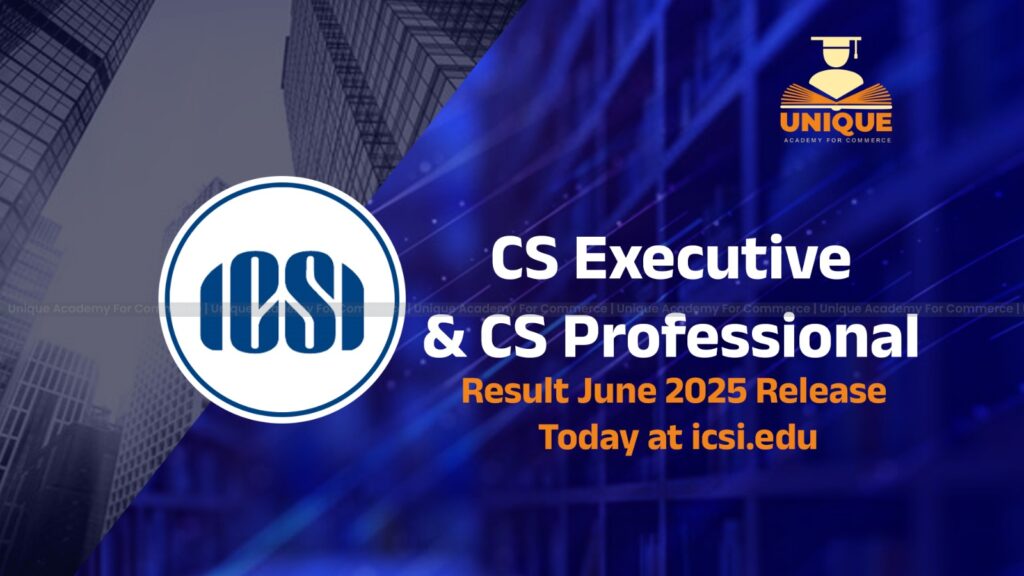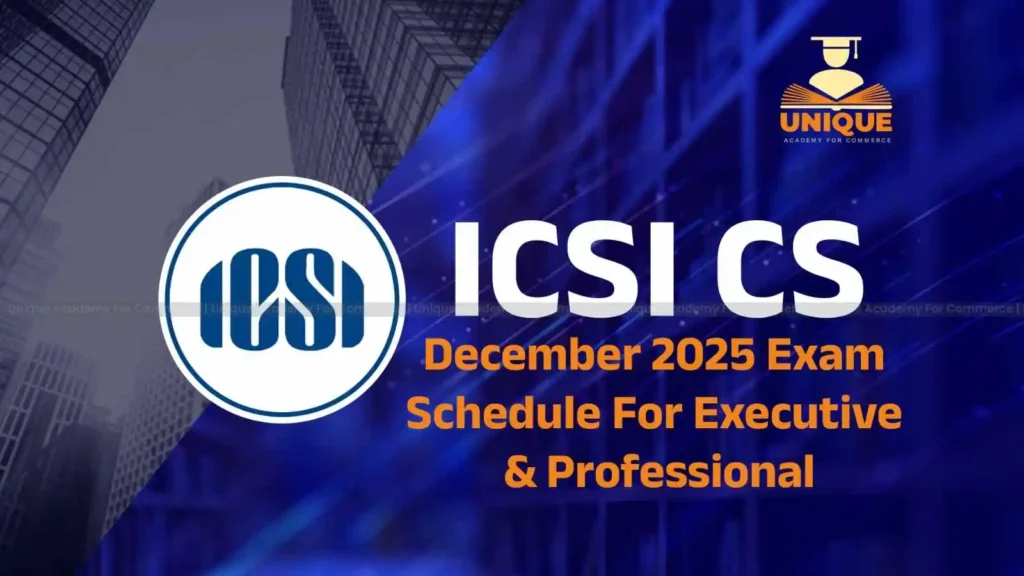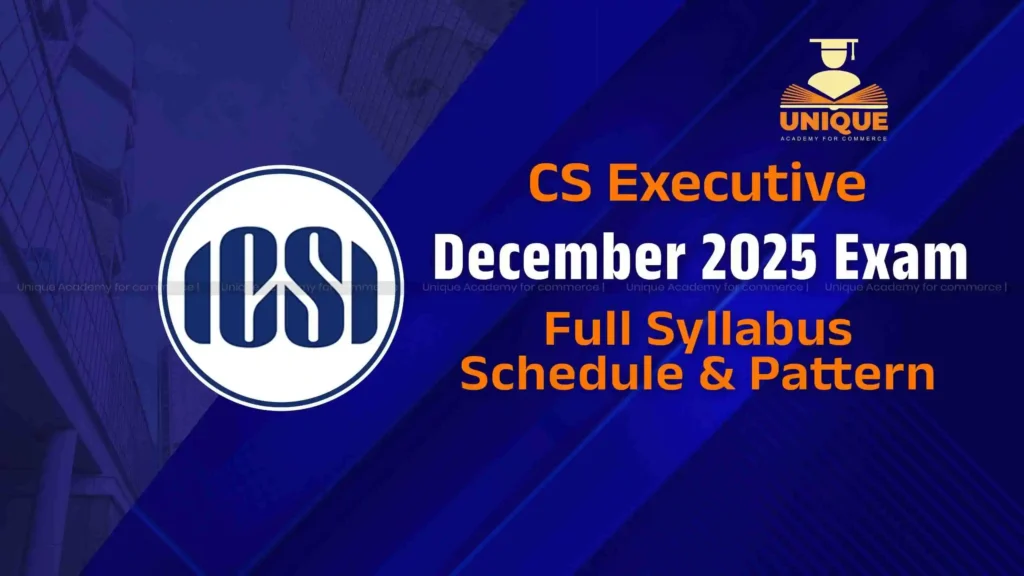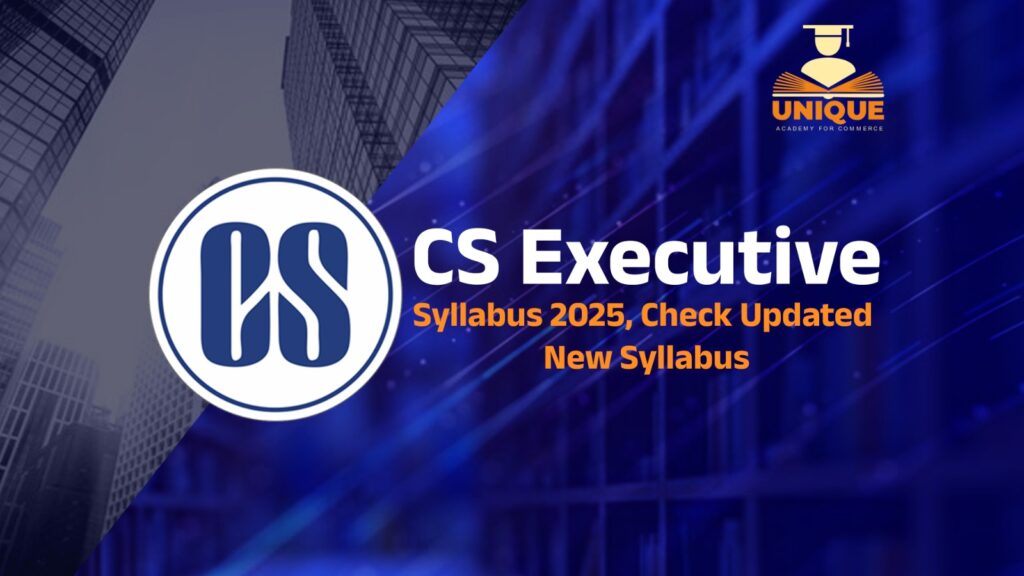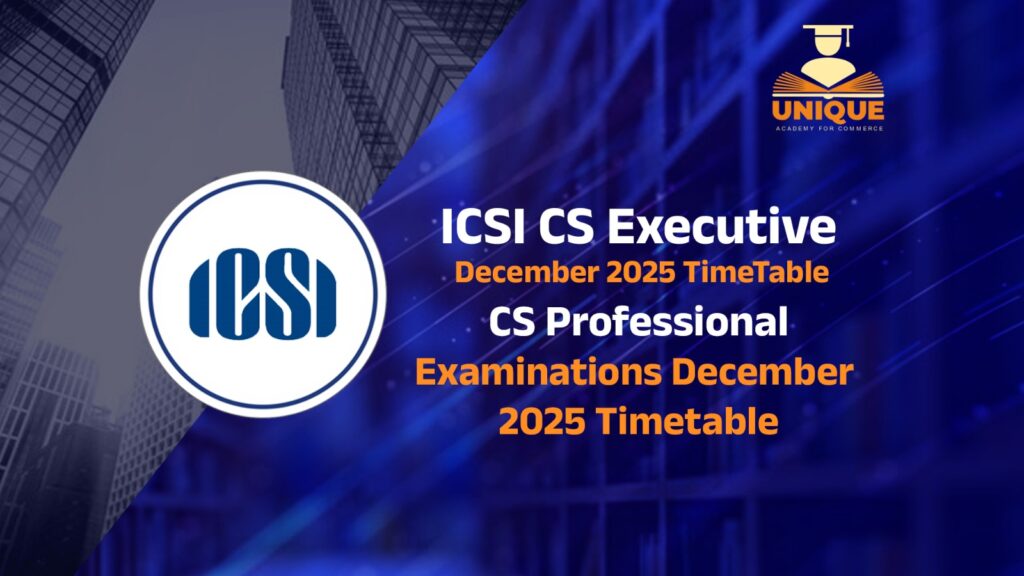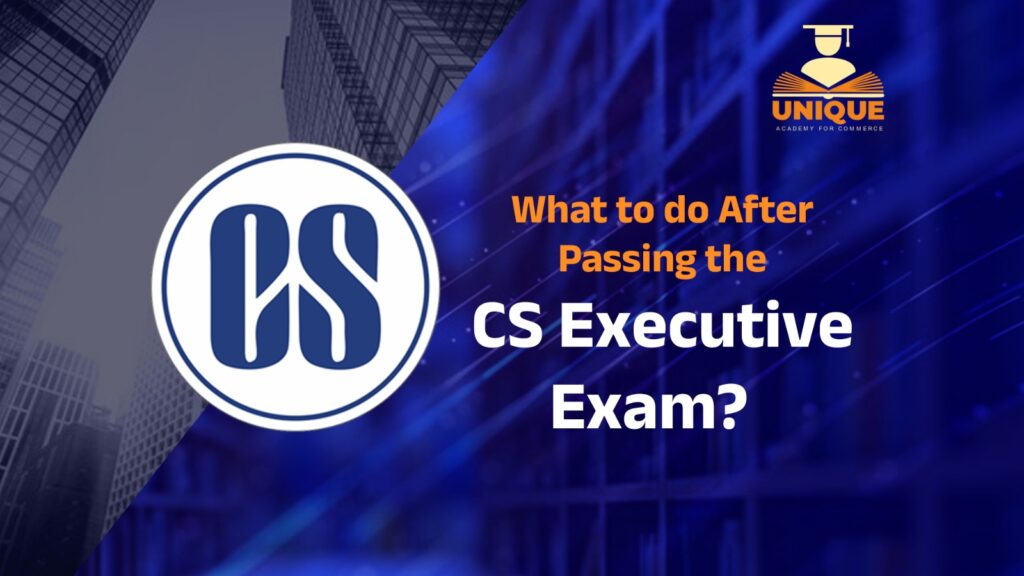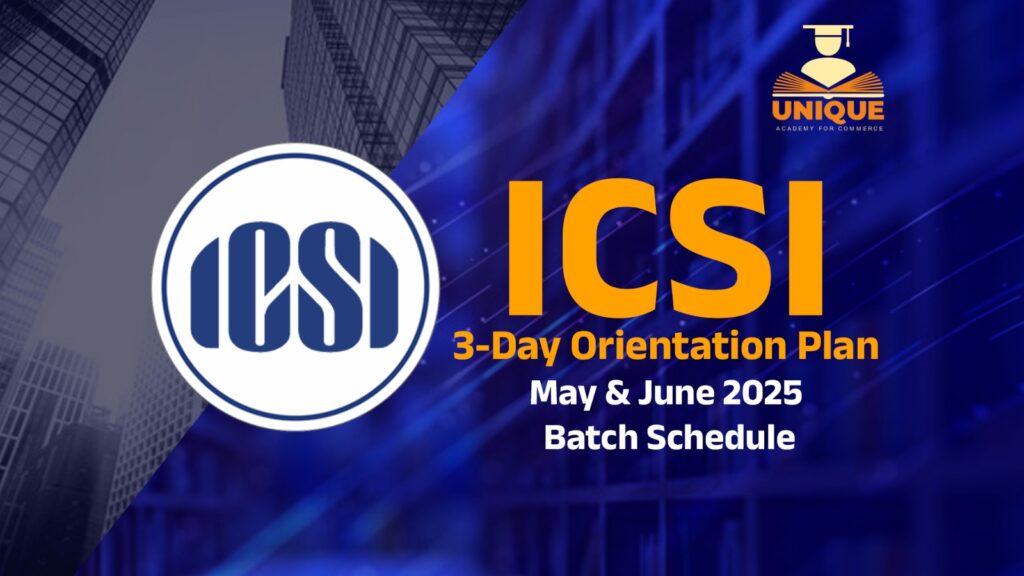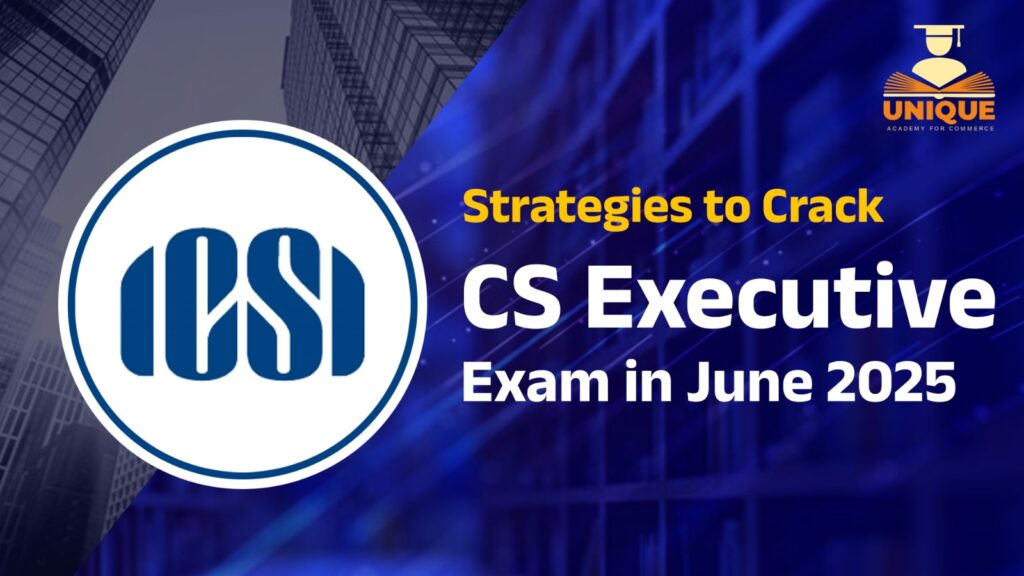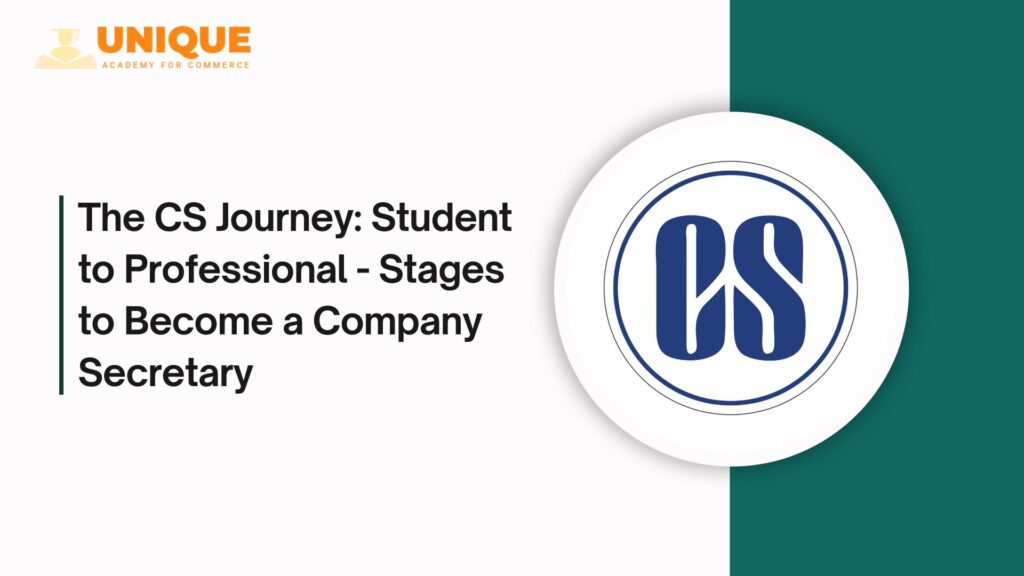CS Course Complete Details 2026: Complete Guide with FAQs (Most Asked Questions)

BECOME A COMPANY SECRETARY is an elite profession that plays a central role in the practice of corporate governance, legal compliance, and advisory functions for business organizations.
BECOME A COMPANY SECRETARY in India happens through a structured approach as prescribed by the Institute of Company Secretaries of India. Here, we help you 10 elaborate steps to reach your goals of becoming a Company Secretary.
What is a CS (Company Secretary)?
Know the role of CS before knowing the certification process. A CS ensures the company acts within legal frameworks, the compliance state with corporate laws, manages secretarial functions, and is a key advisor to the board of directors on corporate governance.
This is not just a knowledgeable lawman but also a leadership and strategic skills person.
CS Executive Registration 2026 Overview
| Particulars | Details |
| Full Exam Name | CS EXECUTIVE EXAM |
| Conducting Body | Institute of Company Secretaries of India |
| Frequency of Conduct | 2 times a year |
| Exam Level | National Level Exam |
| Languages | English |
| Mode of Application | Online |
| Mode of Exam | Offline |
| Exam Duration | 3 Hours |
Company Secretary Admission Process Executive – Second Level of Examination
To be specific, after clearing CSEET exam based on the passing standard of ICSI, a candidate is admitted to the CS Executive level. It is mandatory to clear the CSEET Exam to get admission in the Second level.
Essential: A Student shall be admitted to the Second level of CS Exams as well if they have passed Graduation with at least 50% marks from any recognized university in India or is a Candidate for the Final level of the CA Course (ICAI) or the Final level of CMA Course (ICMAI).
CS Executive exams are held twice in a year, June and December at centres all over the nation.
Follow the ICSI CS Executive Form 2026 Step-by-step guide
Fill up the application form very carefully and attach following documents:
- Key in the official ICSI website on your browser, icsi.edu, through any web browser you may have on your computer.
- You will be presented with a screen that displays the documents attached to the application.
- You still have to enter the CSEET Unique Identity Number and CSEET Roll Number as the system will automatically check whether you are eligible or not.
- You will have to give in your verification code then submit.
- Now you have to fill other scant details mentioned on the screen such as Educational Qualification, Information Sources and Documents Details and then proceed.
- Ensure that the fields, which you had been filled up, were done correctly before submitting the admission application form.
- Pay the Application Fee online.
- Last but not the least, you need to click on the Save button and the application form will get saved to your device.
FAQs
CS Executive is the second phase of the Company Secretary (CS) program offered by the Institute of Company Secretaries of India (ICSI). It follows the passing of the CSEET exam (or, for graduates and candidates having passed ICAI/ICMAI directly). It exposes students to major subjects of corporate law, governance, finance, and compliance and serves as the bridge between the foundation (CSEET) and final (CS Professional) stages.
They cannot be compared head to head because they cater to different career paths.
CA (Chartered Accountancy): Emphasizes finance, audit, and taxations.
CS (Company Secretary): Deals with company law, corporate governance, and legal compliance.
If you like law, drafting, and regulatory schemes, CS is a better choice. If you are inclined towards numbers and accounting, CA would be a better choice.
Experience, firm size, and position influence salary:
Junior level (0–2 years): ₹3 – ₹5.5 LPA (Assistant CS, Compliance Executive).
Middle level (3–7 years): ₹6 – ₹12 LPA (Assistant Manager, Company Secretary in mid-sized companies).
Senior level (8+ years): ₹15 – ₹30 LPA+ (CS in listed companies, large MNCs).
A few senior CSs in big corporates, particularly as Company Secretaries cum Legal Heads, may earn ₹1 crore+ a year.
The CS Executive itself is a single level, but it is split into two modules (Module 1 & Module 2) consisting of 8 papers in total. Students may attempt one module at a time or both at one go.
No, CS is a professional qualification, not a government service. Yet, Company Secretaries are sought in:
PSUs (Public Sector Undertakings)
Regulatory authorities (SEBI, RBI, IRDAI)
Government ministries (for advisory roles for policy and laws).
Both are challenging in their respective ways.
CA: Number-crunching intensive with emphasis on accounts, finance, and auditing.
CS: Law and theory intensive, involving memory, drafting, and interpretation.
Your preference for numbers over law will determine what seems more challenging.
Yes. Top CS professionals who are Company Secretaries of major listed companies, MNCs, or conglomerates can make crores a year. Independent CSs with a good client base also achieve this level. It does, however, require experience, expertise, and networking.
Extremely little. In contrast to CA, CS has very little math. Topics are primarily law, governance, compliance, finance, and taxation. Elementary accounting knowledge is helpful, but advanced math is unnecessary.
Yes. Growing corporate governance standards have increased the demand for CSs exponentially. CS professionals find employment in listed companies, PSUs, startups, consultancy firms, and regulatory authorities. It also provides scope for practice in solo capacity.
There is no limitation on the number of attempts. You can try until you get through, but finishing early helps in career development.
Yes. As a result of tight SEBI, MCA, and RBI compliance norms, companies need skilled CS professionals to manage governance, filings, and secretarial work. Demand is growing steadily.
Yes. Even post-Executive, one can be a Compliance Executive, Legal Associate, or Assistant CS. However, more demanding and remunerative jobs typically follow post-CS Professional.
You can reappear in the subsequent exam session (June/December). There is no attempt limit, but with every attempt, there is a 6-month setback, hence careful planning and preparation are crucial.
Most sought after specialisations are:
Corporate Law & Governance
Compliance & Legal Advisory
Corporate Finance, Mergers & Acquisitions
Independent Secretarial Practice
Choice based on whether you want to work in corporates or independent consultancy.
Once you clear Executive, you proceed to the CS Professional Programme. In addition to this, students have to complete 15 months of practical training under a practicing CS or in a firm, according to ICSI guidelines.
8 papers spread over 2 modules:
Module 1: Jurisprudence, Company Law, Business & Labour Laws, Corporate Accounting/Finance.
Module 2: Capital Markets, IP & Commercial Laws, Taxation, Cost & Management Accounting.
Students have to complete 15 months of practical training under a practicing CS or in a approved company upon passing Executive. The training develops hands-on exposure in filings, board meetings, compliance, and governance.
Courses such as B.Com, LLB, BBA, or Economics go well with CS.
B.Com – develops commerce and finance foundation.
LLB – adds legal knowledge, useful in corporate law.
BBA/Economics – suitable for managerial and analytical awareness.
There is no limit. Anyone after 10+2 (through CSEET) or as a graduate (direct entry) can begin CS at any point in life.
A Commerce or Law degree is the most suitable, but CS can be combined with any graduation. Students who pursue non-commerce streams may have to work a bit harder in accounting and finance papers.
CSEET passed candidates: approximately ₹18,900.
Direct entry (graduates/professionals): approximately ₹23,900.
Exam charges and coaching charges are over and above.
CSEET route: 9 months of study time before attempting the exam.
Direct entry route: 12 months of study time.
This provides sufficient time for preparation of the syllabus.
Yes, self-study is permissible using ICSI study material. But many opt for coaching due to guidance, updates, and practice of answer writing, particularly for law-dominant topics.
The syllabus is vast and law-heavy, requiring memorisation, interpretation, and writing skills. Unlike objective exams, Executive exams are descriptive, making presentation and drafting skills important.
Unlimited attempts are allowed. But each failed attempt delays your career. Consistent study and planning can help clear it within the first 1–2 attempts.
Make a realistic study plan.
Emphasize on ICSI study material and bare Acts.
Practice previous 10 years’ question papers and mock tests.
Practice presentation and writing answers.
Revise at least 3 times prior to the exam.
40% marks in every paper AND
50% overall in every module.
Not satisfying either requirement means re-appearing for that paper/module.
Yes, because of its long syllabus, legal concepts, and descriptive papers. But with daily study, writing practice, and time management, most students clear it on their first attempt.
Get FREE CSEET BATCH | CSEET VIDEO LECTURE | Online & Face To Face Batch
Get Details CS Executive Classes Latest Batch





